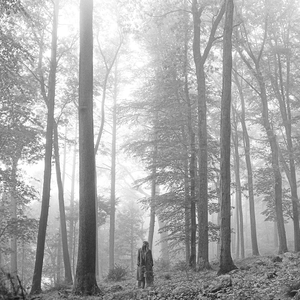Stamp: Ram (Ukraine 1997)
Ram (Ukraine 1997)
20 December (Ukraine ) within release Folk Arts goes into circulation Stamp Ram face value 40 Ukrainian kopiyka
| Stamp Ram in catalogues | |
|---|---|
| Michel: | Mi: UA 232C |
| Stamp Number: | Sn: UA 290a |
Stamp is horizontal format.
Also in the issue Folk Arts:
- Stamp - Rooster face value 20;
- Stamp - Keptar face value 20;
- Stamp - Ram face value 40;
- Stamp - Decorative Dish face value 40;
- Mini Sheet - Traditional Ukrainian Folk Art face value 240;
- Stamp - Decorative Dish face value 40;
- Stamp - Keptar face value 20;
- Stamp - Rooster face value 20;
- Stamp - Ram face value 40;
Stamp Ram it reflects the thematic directions:
Art is a diverse range of human activities in creating visual, auditory or performing artifacts (artworks), expressing the author's imaginative or technical skill, intended to be appreciated for their beauty or emotional power. In their most general form these activities include the production of works of art, the criticism of art, the study of the history of art, and the aesthetic dissemination of art. The oldest documented forms of art are visual arts, which include creation of images or objects in fields including painting, sculpture, printmaking, photography, and other visual media. Architecture is often included as one of the visual arts; however, like the decorative arts, or advertising, it involves the creation of objects where the practical considerations of use are essential—in a way that they usually are not in a painting, for example. Music, theatre, film, dance, and other performing arts, as well as literature and other media such as interactive media, are included in a broader definition of art or the arts. Until the 17th century, art referred to any skill or mastery and was not differentiated from crafts or sciences. In modern usage after the 17th century, where aesthetic considerations are paramount, the fine arts are separated and distinguished from acquired skills in general, such as the decorative or applied arts.
A craft or trade is a pastime or an occupation that requires particular skills and knowledge of skilled work. In a historical sense, particularly the Middle Ages and earlier, the term is usually applied to people occupied in small scale production of goods, or their maintenance, for example by tinkers. The traditional term craftsman is nowadays often replaced by artisan and by craftsperson.
Folklore is the body of expressive culture shared by a particular group of people; it encompasses the traditions common to that culture, subculture or group. These include oral traditions such as tales, proverbs and jokes. They include material culture, ranging from traditional building styles to handmade toys common to the group. Folklore also includes customary lore, the forms and rituals of celebrations such as Christmas and weddings, folk dances and initiation rites. Each one of these, either singly or in combination, is considered a folklore artifact. Just as essential as the form, folklore also encompasses the transmission of these artifacts from one region to another or from one generation to the next. For folklore is not taught in a formal school curriculum or studied in the fine arts. Instead these traditions are passed along informally from one individual to another either through verbal instruction or demonstration. The academic study of folklore is called folkloristics.




